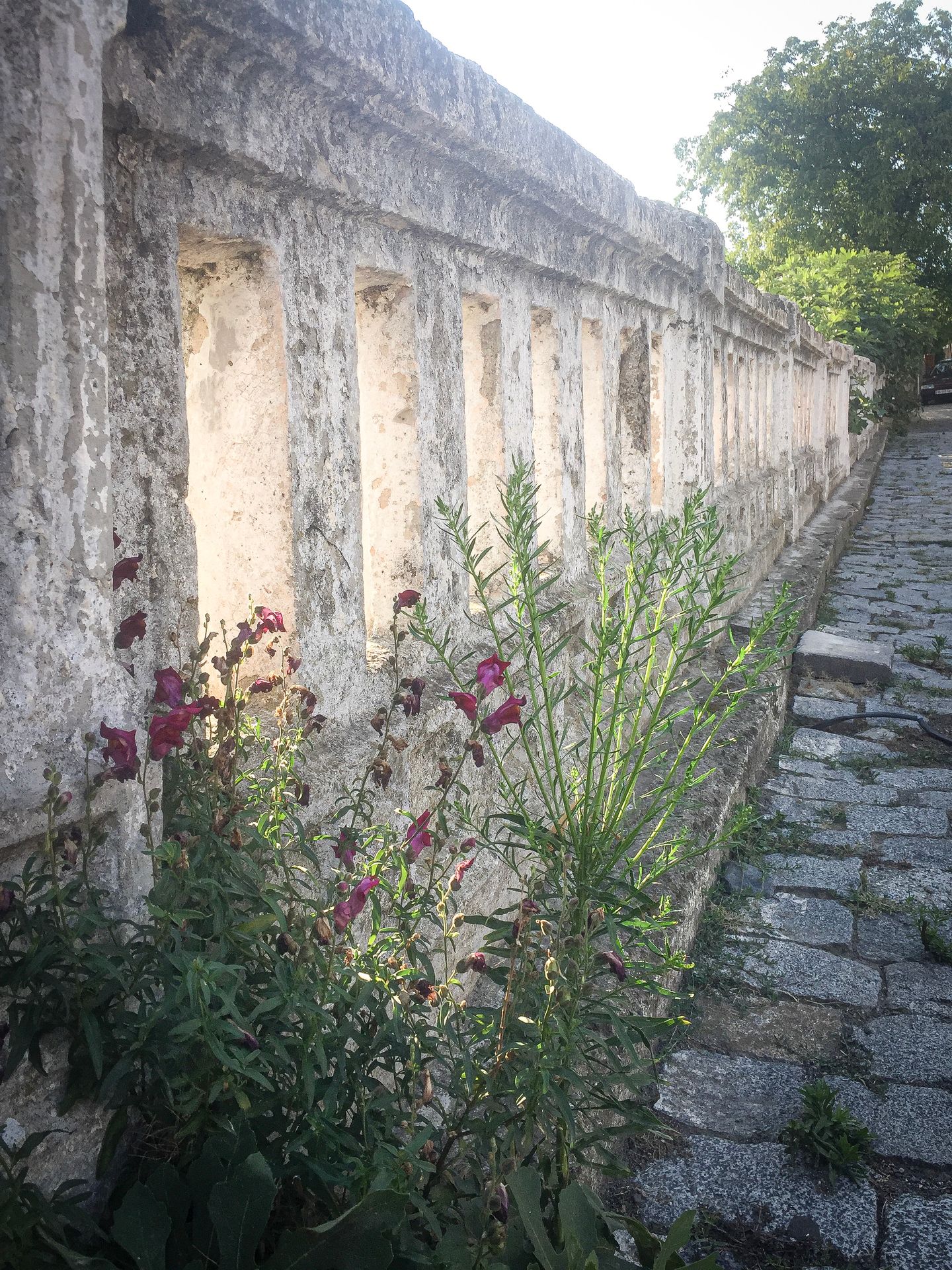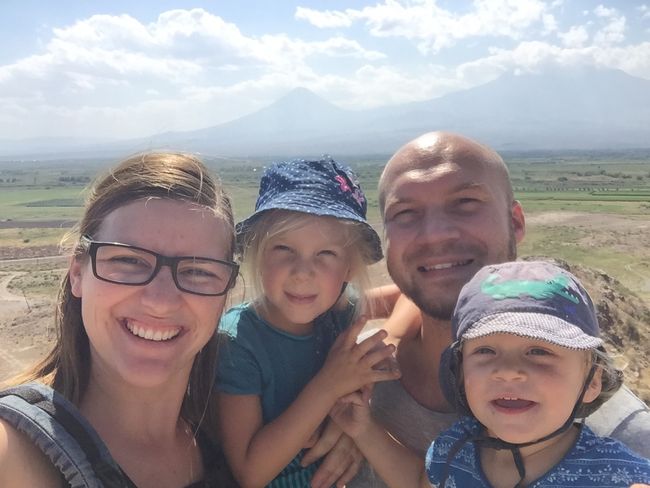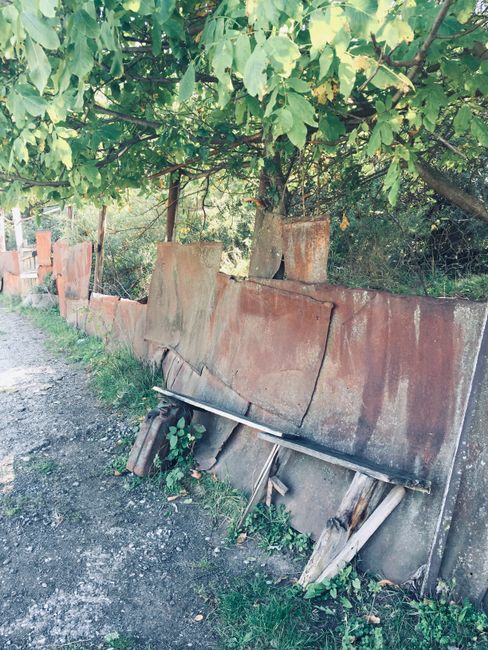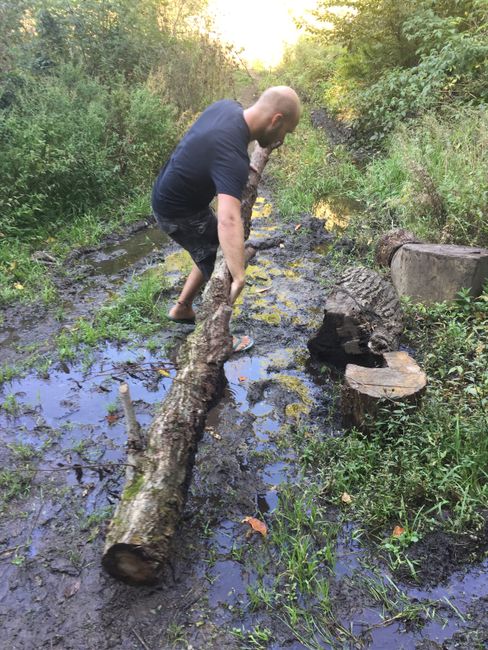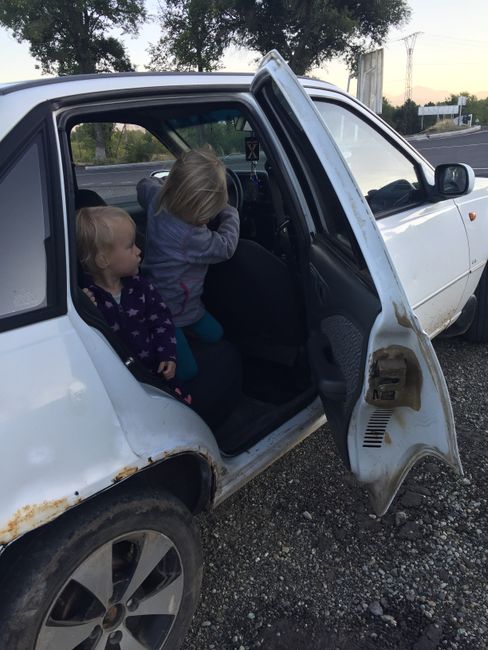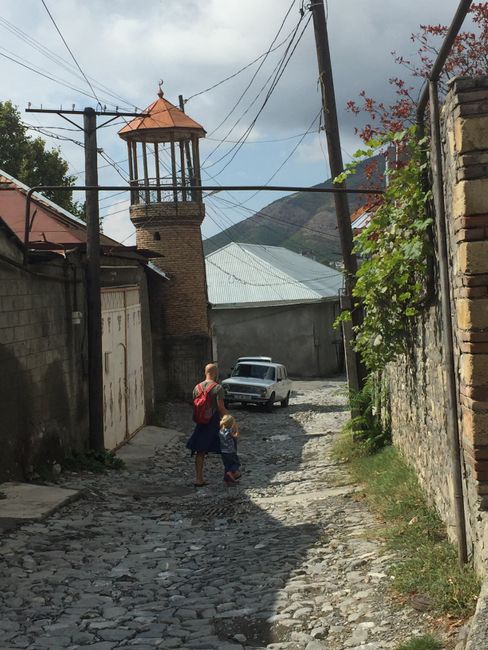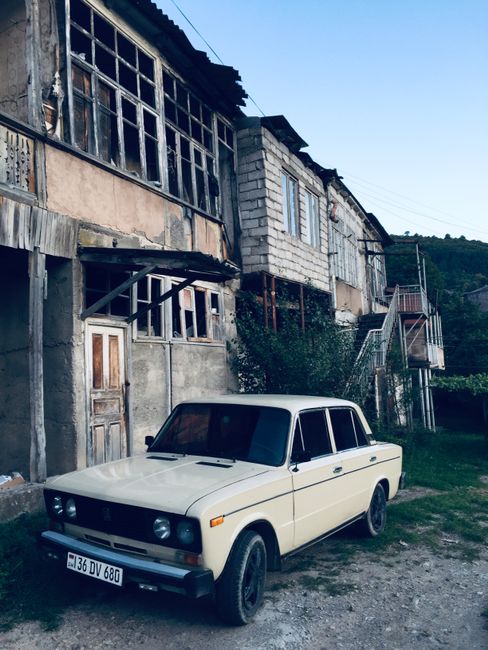The high art of indifference
Publicat: 19.09.2019
Aboneaza-te la Newsletter
By now we have been traveling through the Caucasus for 2 months. We have adapted, rubbed against ourselves and observed a lot. And after 2 months, a little infatuation (Oooh, is everything so great here!) has been lost. Instead, what we all know but don't want to feel reveals itself: that we come from a different culture and are simply trapped in it. And we come from a culture of efficiency and order.
In Germany or Switzerland, it may almost be a popular sport. The head shaking over inefficient authorities, complaints about someone who drives too fast, and the many creative suggestions on how to improve waste separation. It seems to be in our blood to constantly optimize, to always find better solutions, to tidy up, renovate, and complain. Even among young people, there is the pressure to make the most of your time: always doing something, always improving, and definitely not letting yourself go.
Well, we actually thought that we didn't fit into such a generalized schema. Those who know us know that we can live very well with imperfect conditions. We don't need everything to be new and renovated. We don't have a 10-year plan. And in Switzerland and Germany, we were simply always grateful to live in such rich and well-functioning systems that sometimes we lacked the motivation to complain.
And yet - as it is when traveling - we got to know ourselves anew. And we realized: unlike the people here, we are still beginners in being chill. Because they have perfected oriental fatalism, the I-can't-change-anything attitude, and thus the I-am-satisfied-with-how-it-is attitude.
This is particularly noticeable when visiting people in their homes. Since we only stay with locals, we do that every day. None of the houses we have seen from the inside so far meet European standards. The tap water is not drinkable. Toilet paper is not thrown into the toilet because it would clog it. There are many structures on which people depend - sewage, power supply, gas pipeline - that are faulty. Unfortunately, they cannot influence them. So what's the point of thinking about alternatives? You can live with it. In some cities, water-filled containers pile up in residents' bathrooms in case the tap water runs out.
In addition, there is poverty. Renovations cost money. And so does building material. If we now consider how high-quality the building materials are that our Swiss friends have in their apartments! Flawlessness is a sign of prosperity. The people here in Armenia can only dream of that. Many things break here faster - toilets, curtain rods, mattresses, kitchenettes, sofas. They are either cheaply produced or simply very old. And the money is missing to replace them because of the smallest flaw. Sometimes it even pays off to get by with old things. In rural areas, many people still drive Russian Ladas - that is probably THE car of the Soviet Union. And the Soviet Union no longer exists since we have been green on this planet. You can calculate how long these cars have been driving around. Apparently, they still cope better with bad roads, deep puddles, and steep inclines than any modern Toyota - and they are also cheaper and can be repaired by oneself.
But one thing that stands out in every household is things that could be quickly fixed. The tap is dripping. There are holes in the curtains. When you turn on the shower, it whistles in the neighboring room. Many such things that a good handyman could probably fix in no time (not that we are such handymen...). And that's where our German nature comes to light:
We notice it. We mentally make lists of leaky pipes and wobbly furniture. We might even think of solutions and then make jokes about the fact that we are dealing with it. But we still do it.
Challenge - build yourself a bench!
In contrast, our hosts and fellow human beings radiate a sense of tranquility. They have come to terms with the circumstances. This does not mean that there are no clean housewives or hardworking craftsmen here. Sometimes we also notice that people are embarrassed when something is broken in front of us. But somehow, the general limit of what can be optimized and what is considered acceptable is simply different.
The contrast between us and them becomes even greater when you leave the house. In Georgia, we felt that the infrastructure was raw and wild. Bustling intersections, opaque rules, power cables crisscrossed. In the capital of Azerbaijan, we felt that they had tried to introduce systems - but had not thought beforehand. The result: new roads that are flooded at the slightest rain, traffic light systems that make the German pedestrian sprint.
Only here in Armenia are we amazed at how well thought-out and carefully considered some intersections are. There are also supermarket chains and chain restaurants that are crowded and look tidy - a sign of organizational talent for us. And yet, it bothers us. Sometimes we play games like 'Find the mistake' or 'Find a solution'. And that probably sets us apart from the many locals who walk on bumpy roads and sometimes have to deal with annoying bureaucracy. Because in the long run, the attitude of 'I know better' is simply too exhausting.
And so, we are at a point where we can learn from them. Of course, it's nice when things work. When you always have hot water on demand and can rely on laws and regulations. And when there are no construction sites everywhere.
But life in the Caucasus is no walk in the park.
And that's why you better accept it. Otherwise, you become bitter.
But here in Armenia, the people have not accepted one specific thing anymore - their corrupt politicians. Last year, they had enough and after peaceful protests, the rulers who had exploited the country for 20 years had to step down. We talk to people who are enthusiastic about the euphoria and unity of the first days as a new nation. Their eyes light up when they talk about their newly elected prime minister, who is fresh and democratic. He has done a lot of good, invested money in infrastructure and education, and apparently can be personally contacted via Facebook Live Channel for citizens' questions and concerns. What a hero! They tell us that for the first time, they dare to freely express their opinion. It is nice to experience this spirit of new beginnings. And it shows that it can be worthwhile to want to change the existing.
And perhaps it is the art of waiting for the right moment.
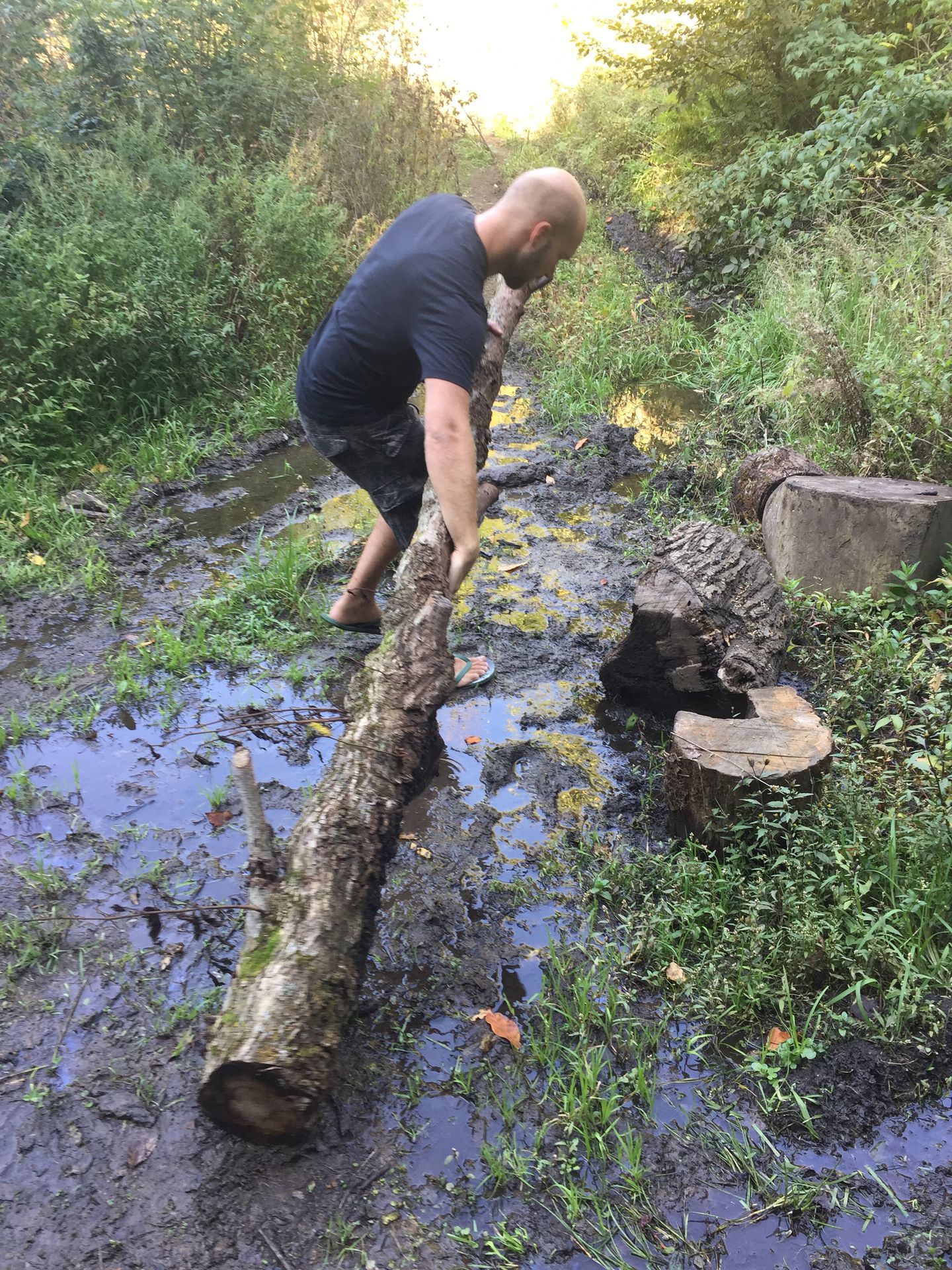
The hiking trail is a lake? No problem for us!
Aboneaza-te la Newsletter
Răspuns
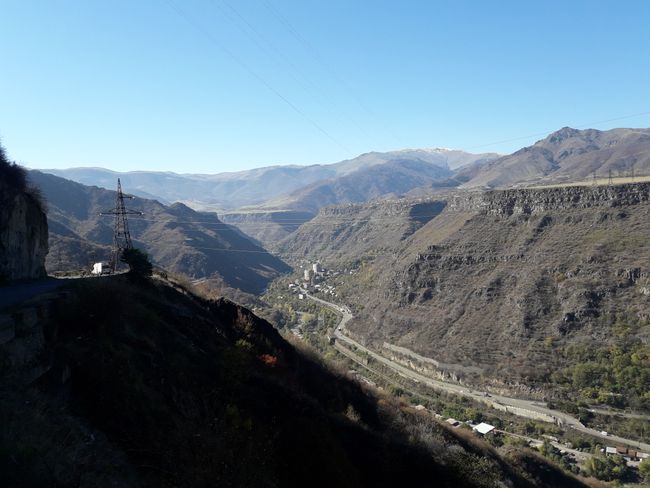
Rapoarte de călătorie Armenia
